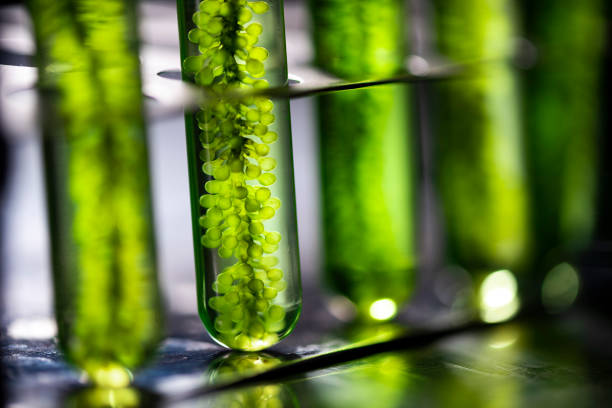
Viruses Found in Saltwater Microalgae Could Be the Key to Bio-saline Agriculture
January 13, 2021| |
Researchers from New York University Abu Dhabi (NYUAD), in partnership with the National Center for Biotechnology Information (NCBI), have uncovered different viruses from the genome of saltwater algae that could be the tool for the development of bio-saline agriculture in regions that have high salinity in their water.
The group of researchers has sequenced the whole-genomes of 107 different species of microalgae from a broad range of evolutionary groups and cultured them on extensive environments, specifically saltwater and freshwater. The researchers have found that algae from saltwater such as Chlorovirus, Coccolithovirus, Pandoravirus, Marseillevirus, Tupanvirus, and others have significantly more genes in their genomes compared to algae found in freshwater. These saltwater viruses are responsible for the maintenance of nuclear and cellular membrane integrity in a saline environment.
This genomic information could serve as a guide for future bioengineering efforts for the development of plant strains that can adapt and grow in saltwater and help alleviate problems in food security in regions that have high water salinity.
For more details, read the article in Cell.
| |
You might also like:
- Giant Virus Genomes Found Riding on Algae Genomes
- GE Plants with Algae Genes Could Improve Crop Yields
- Canadian Researchers Use Algae to Produce COVID-19 Test Kits
Biotech Updates is a weekly newsletter of ISAAA, a not-for-profit organization. It is distributed for free to over 22,000 subscribers worldwide to inform them about the key developments in biosciences, especially in biotechnology. Your support will help us in our mission to feed the world with knowledge. You can help by donating as little as $10.
-
See more articles:
-
News from Around the World
- Study Shows Groups of Bacteria Can Work Together to Protect and Improve Crop Growth
- Viruses Found in Saltwater Microalgae Could Be the Key to Bio-saline Agriculture
- Chinese Scientists Discover Rice Gene for Adaptation to Low Soil Nitrogen
- Europe's Position on COVID-19 Vaccines Inconsistent with its GMO Stance
- International Research Team Identifies Bacterium that Protects Rice Plants from Diseases
- Defra Seeks Support for Gene Editing; Launches Consultation
-
Research Highlights
- Transgenic Chickpeas Exhibit Drought Tolerance, Increased Seed Yield Under Extremely Dry Condition
-
Plant
- CRISPR Offers Glowing Solution to Male Chicks Culling Problem
- Superbug Slaying Antibiotics Increase Production by Tenfold With CRISPR-Cas9
- Expert Proposes Techniques to Address Regulatory Concerns in Gene Editing
- Breakthroughs in Science Using TALENs
-
Health
- UChicago Creates First Computational Model of Entire COVID-19 Virus
-
Read the latest: - Biotech Updates (January 14, 2026)
- Gene Editing Supplement (December 17, 2025)
- Gene Drive Supplement (February 22, 2023)
-
Subscribe to BU: - Share
- Tweet

